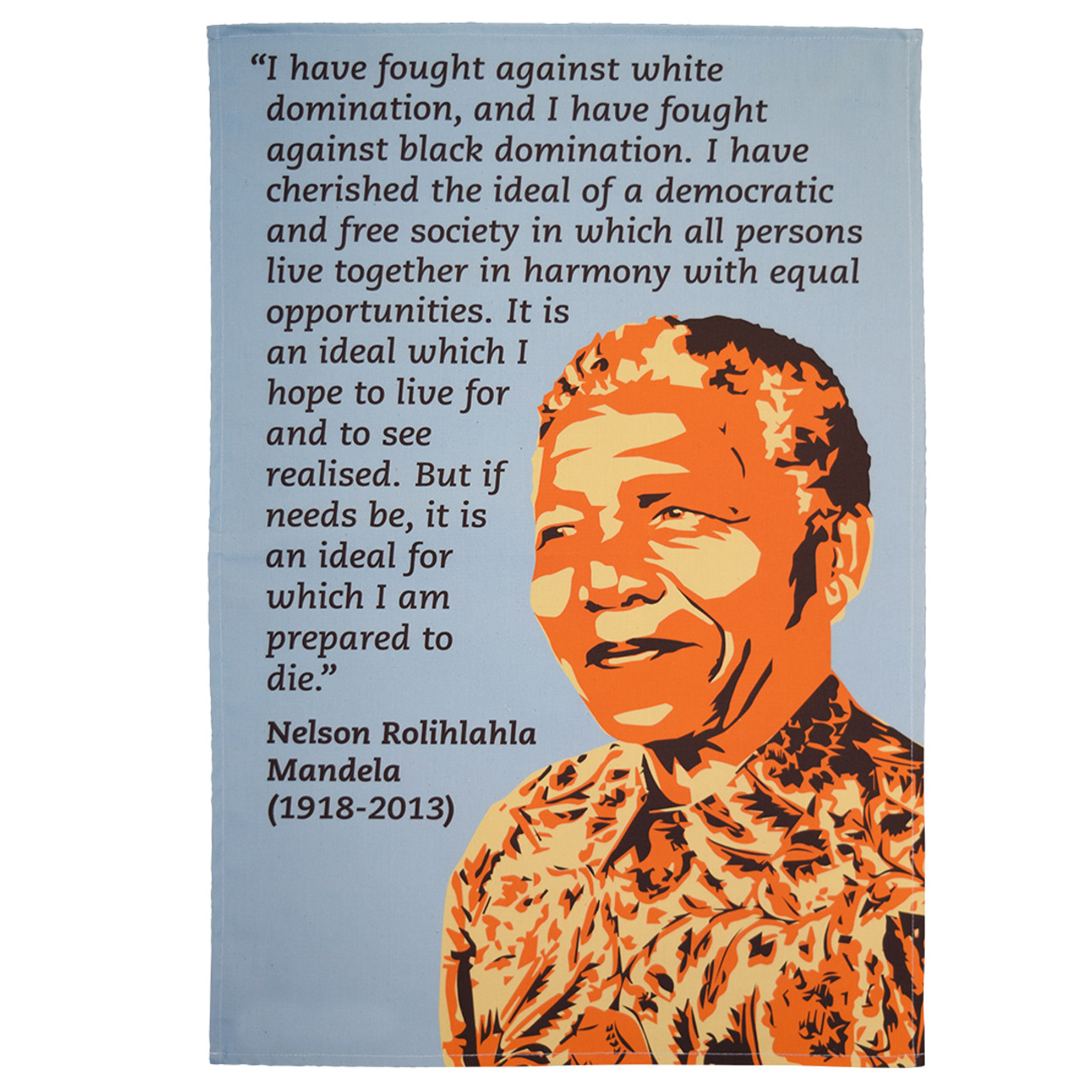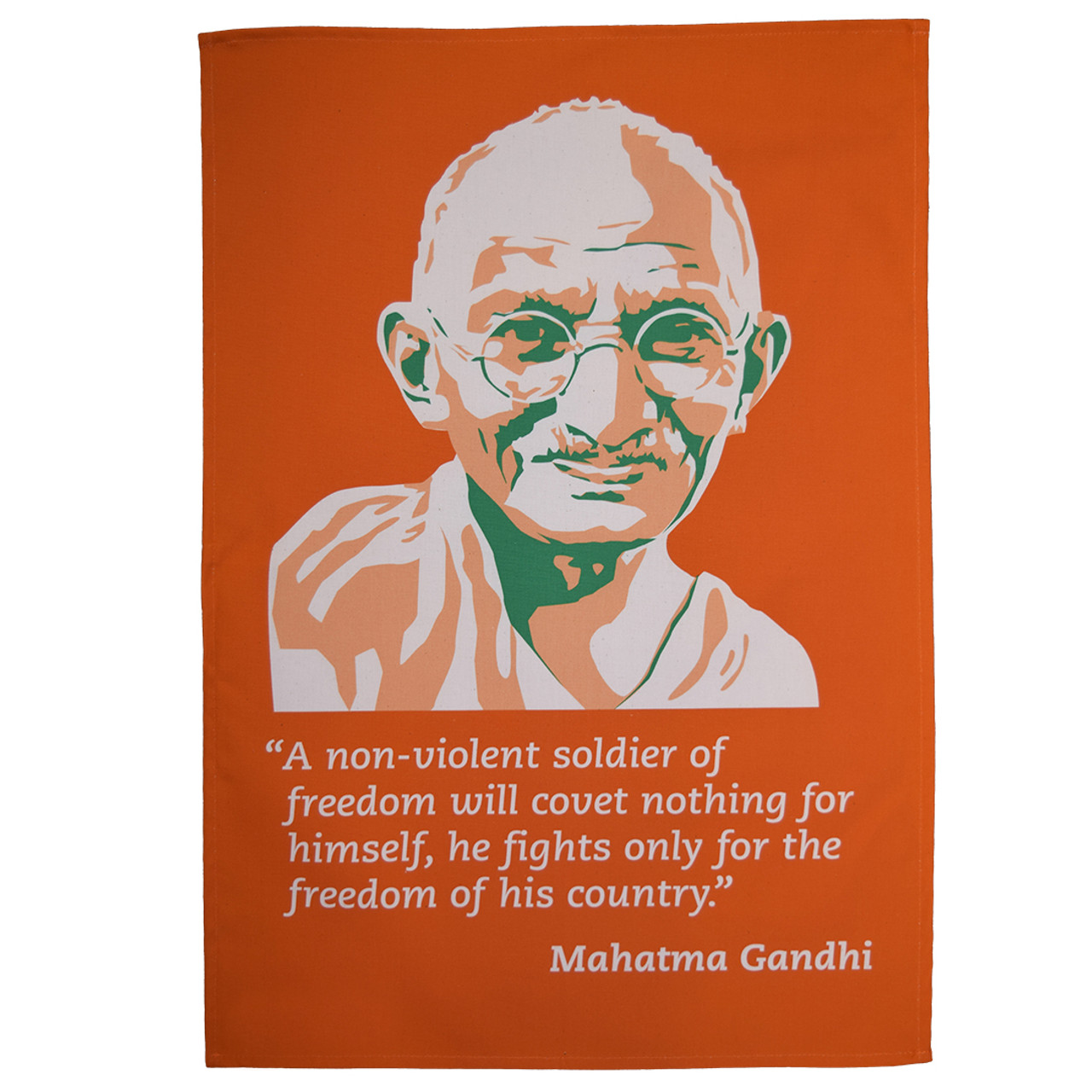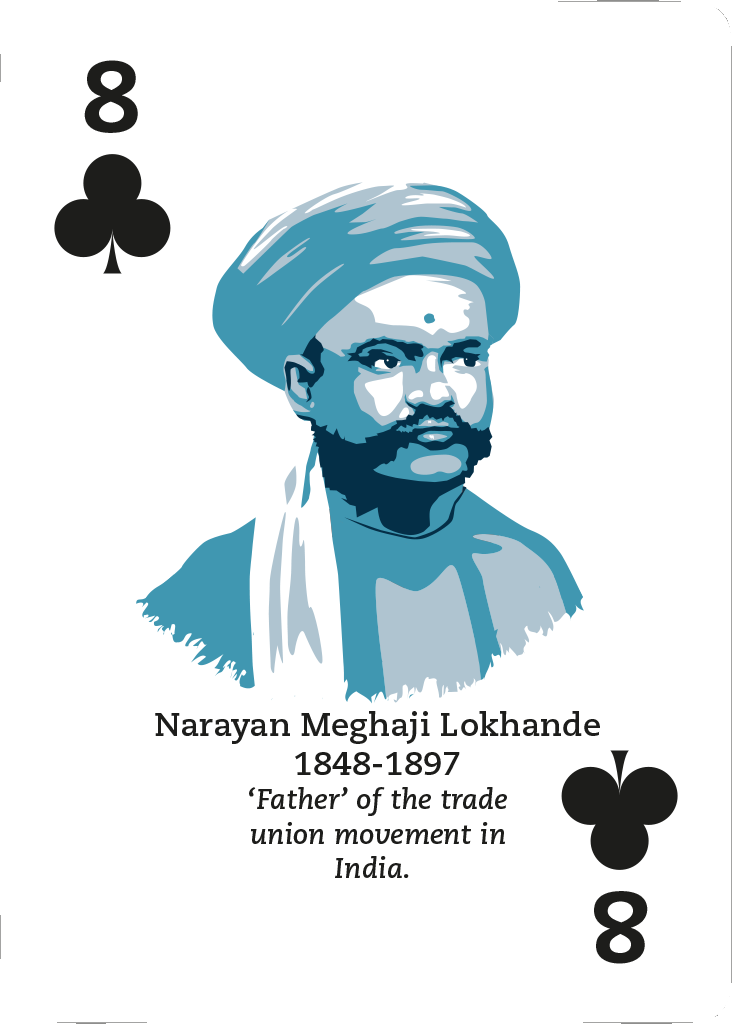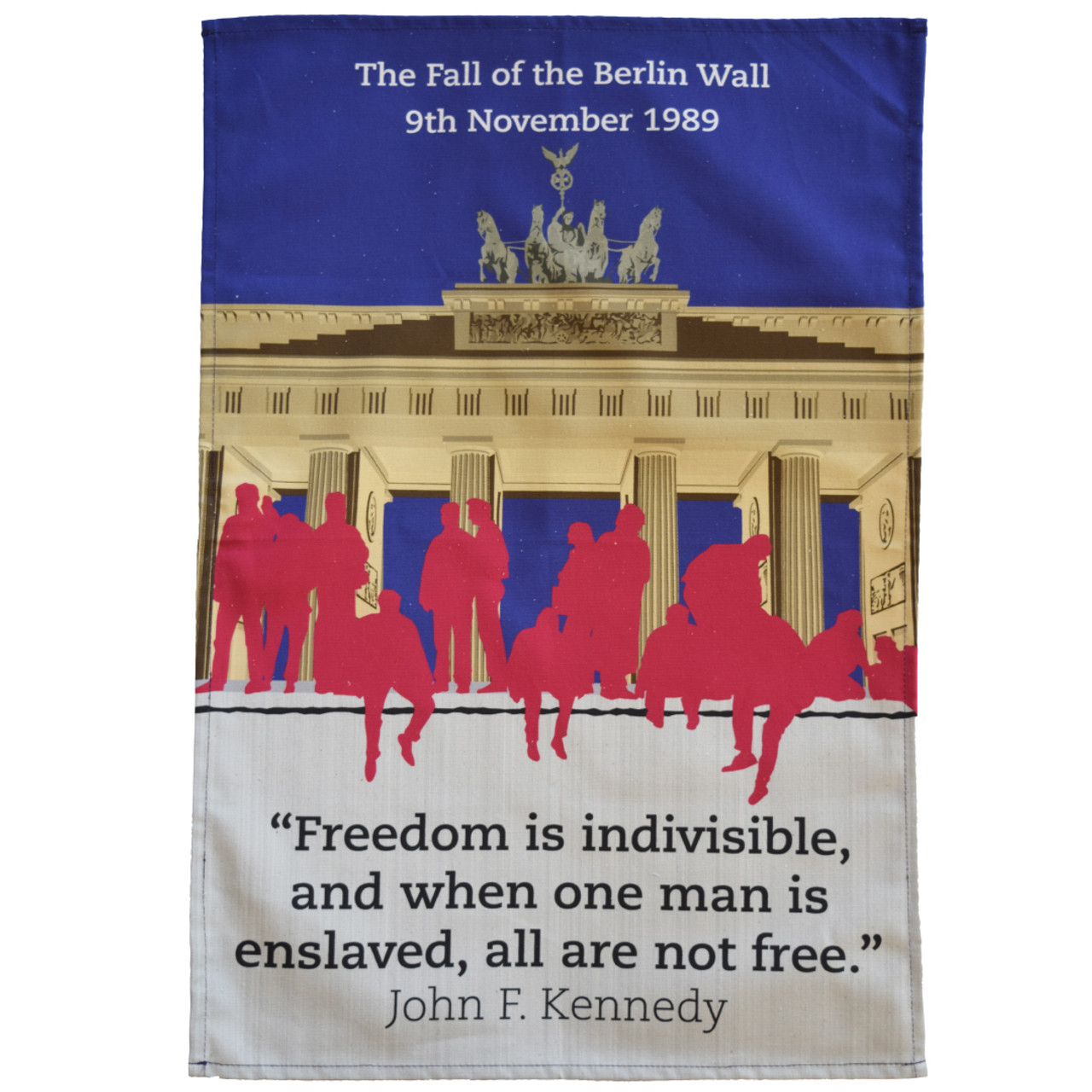Jawaharlal Nehru: Another Kind of Strongman
Posted by Pete on 14th Nov 2024
Jawaharlal Nehru sought first to free India, and then to ensure its independent voice on the world stage
"At the stroke of the midnight hour, when the world sleeps, India will awake to life and freedom."
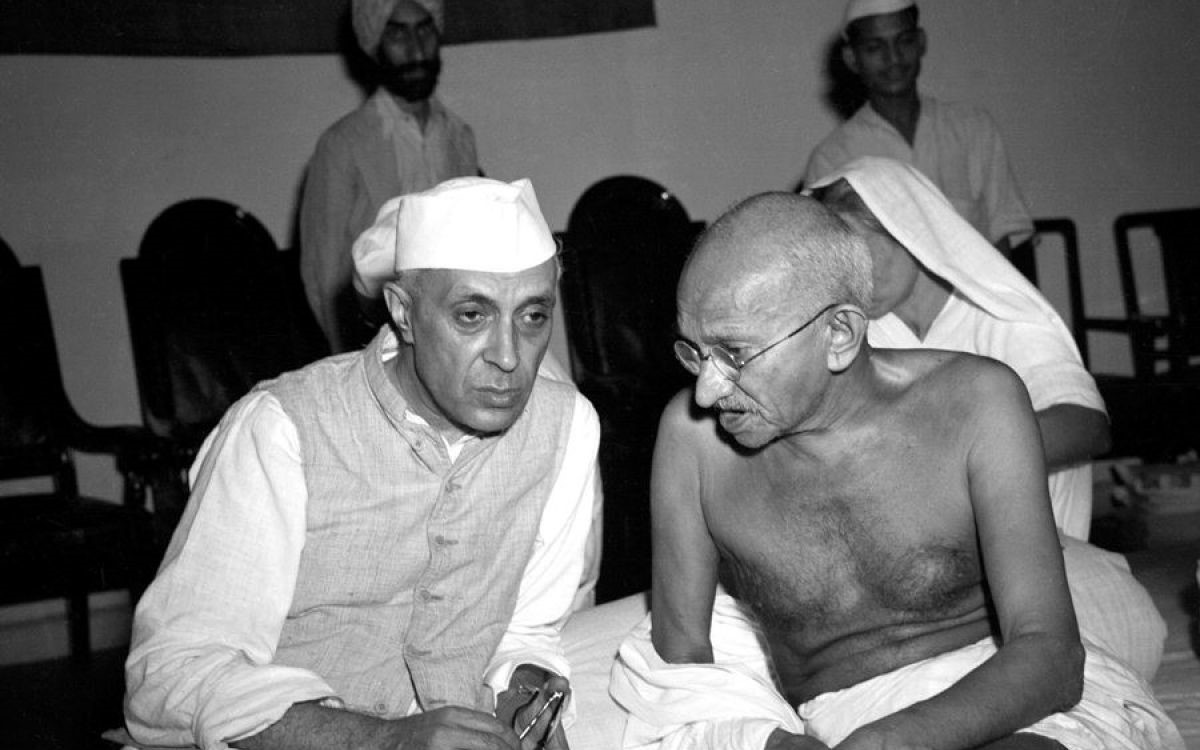
Gandhi and Nehru in 1946
Jawaharlal Nehru was born on this day in 1889.
He was the first Prime Minister of independent India: an anticolonial activist as important as Gandhi, who was one of the most unique politicians of the twentieth century.
Like Mandela in South Africa, Nehru made the transition from anti-colonial activist to the first democratically elected leader of his country
See the Nelson Mandela tea towel
Born into an elite Hindu family in Allahabad, in British-ruled India, Nehru had contacts with anticolonial activists since his childhood.
His dad was prominent in the Indian National Congress, and Nehru met the Anglo-Irish radical Annie Besant when he was still a child, when she was campaigning for Indian home rule.
Nehru went to school in England in 1905, where he’d train as a lawyer.
But Nehru also read up on European revolutionaries like Giuseppe Garibaldi, and imagined a similar struggle for colonial freedom in India.
Nehru also studied the socialist tradition in Britain through writers like George Bernard Shaw and H. G. Wells, and he would remain committed to social liberation throughout his political career.
Nehru returned to India in 1912, where he joined the growing movement for home rule. In 1916, in Lucknow, he met Gandhi for the first time at a meeting of the Indian National Congress.
Nehru quickly rose to prominence in the Congress during the 1920s.
Nehru worked closely with Gandhi on their strategy of civil disobedience in pursuit of Indian freedom
See the Mahatma Gandhi tea towel
As the British Empire responded with violence to Indian demands for autonomy, Nehru and Gandhi pushed for a strategy of civil disobedience.
Nehru emerged as the leader of the radical wing of the Congress Party, closer to the Indian socialist and communist movements, and more committed to a total break with Britain.
In 1929, in Lahore, Nehru convinced the Congress to demand complete independence from the British Empire – not just the ‘Dominion’ status enjoyed by the ‘white’ colonies like Canada and Australia.
The British regularly imprisoned Nehru during the interwar years, but it was futile.
The independence movement continued to grow through mass actions and strikes, like the Salt March of 1930.
On the outbreak of WW2 in 1939, Nehru, as a committed anti-fascist, was instinctively sympathetic to the Allies.
However, the British colonial government in India joined the war undemocratically, without consulting the Indian people, and when the Viceroy refused Nehru’s efforts to support the war in return for a commitment to Indian independence afterward, the Congress was left no choice.
The British seemed intent on waging a war for democracy against fascism in Europe while maintaining a racist dictatorship in Asia.
Nehru therefore felt he had to support Gandhi’s ‘Quit India’ campaign in 1942, demanding immediate decolonisation, and both of them were imprisoned again.
But Britain’s colonial arrogance didn’t pay off.
Naryan Meghaji Lokhande was an earlier figure to have sought peaceful improvements to the lives of ordinary Indians, leading the movement to make Sunday a holiday in India
See the International Labour Movement Playing Cards
On 15 August 1947, after decades of anticolonial struggle, British India became independent as India and Pakistan.
The violence of the 1947-8 Partition was immense, resulting from years of imperialist ‘divide and rule.’
And in the aftermath, in January 1948, Gandhi was assassinated.
But Nehru was left behind, elected Prime Minister of the independent India they had both fought for.
The challenges of government were significant: class conflicts and religious and ethnic tensions inside the new state, a violent rivalry with Pakistan, and the threat of new empires like the United States, keen to dominate India on the global stage.
Over the next two decades, Nehru navigated this minefield skilfully, and often with good intentions.
Within India, Nehru pursued an economic policy of socialist-inspired land reform and industrial development, although he was limited by the landlord lobby inside the Congress Party.
Nehru successfully made sure that India became a republic, not a monarchy, and that all of the old ‘Princely States’ were absorbed as prince-less provinces.
He was also adamant that India should be a secular and pluralist democracy, to prevent it from either disintegrating along religious, linguistic, and ethnic lines, or being dominated by narrow Hindu nationalism.
As the second half of the 20th century wore on, the struggle between the US and Soviets overtook anti-colonialism as the dominant theme of international relations
See the Fall of the Berlin Wall tea towel
On the international stage, too, Nehru promoted the cause of anti-imperialism which had created India.
Nehru supported decolonisation struggles in Africa and Asia, although he approved the use of armed force to prevent Indian-controlled Kashmir from either becoming independent or joining Pakistan.
Nehru also pioneered the Non-Aligned Movement in the Cold War, allying with leaders like Egypt’s Gamal Abdel Nasser in demanding the right of decolonised countries to have an independent foreign policy.
Nehru died in office in May 1964, widely popular among Indians and abroad.
Unlike Gandhi, he had to govern India after independence, and Nehru did so with more of a moral compass than most politicians ever manage. It was a sign of what decolonisation can accomplish in practice.

